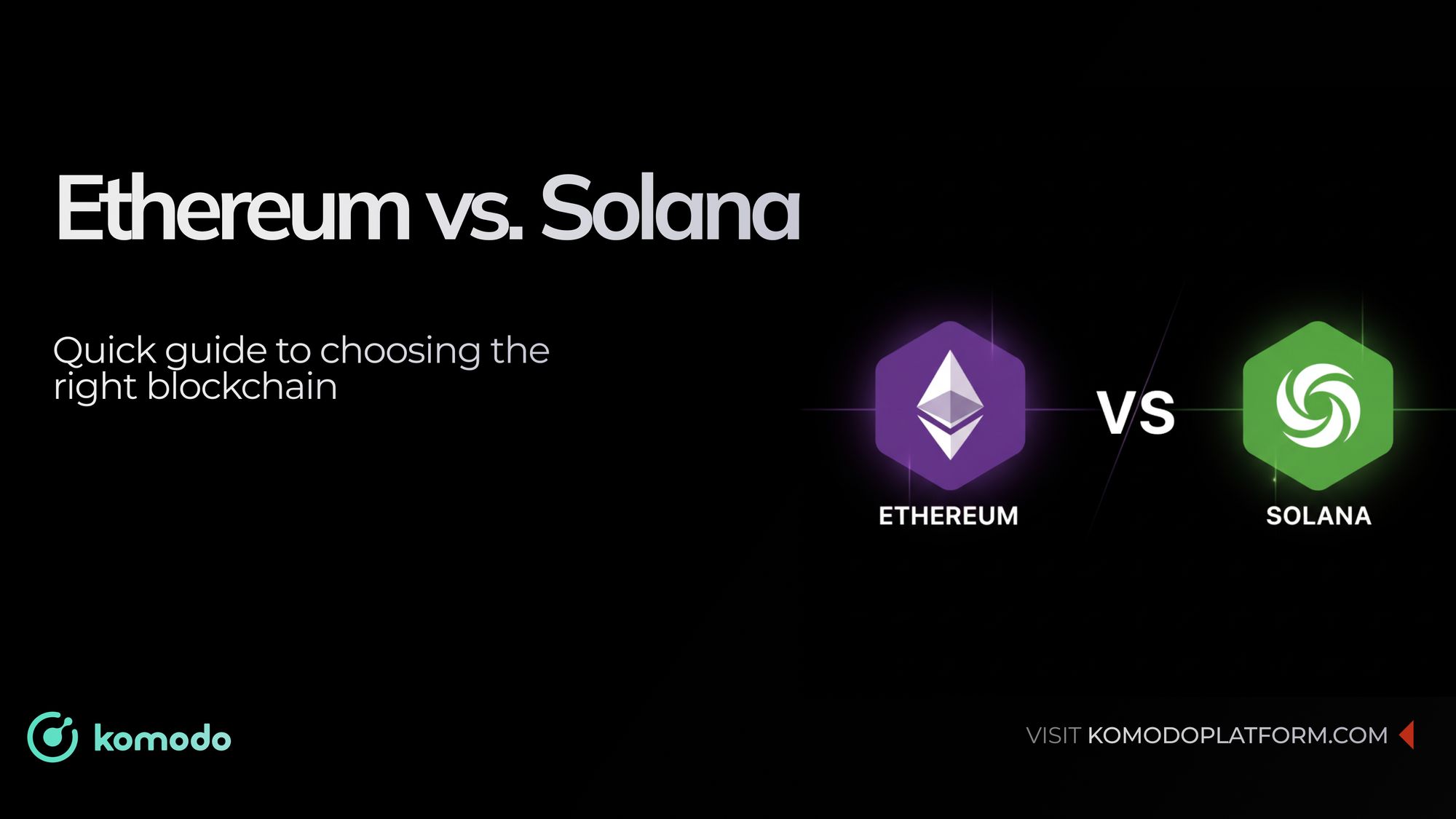Nowadays Ethereum and Solana stand out as two of the most influential networks in the blockchain space. Ethereum is the established veteran, powering DeFi, NFTs, and institutional-grade infrastructure. Solana is the performance-driven challenger known for its speed, low fees, and developer appeal for real-time and gaming applications.
They represent two very different design philosophies:
- ETH focuses on modularity, decentralization, and long-term security.
- SOL is built around performance and high throughput, pushing hardware to its limits for faster transactions.
For anyone building in Web3 or exploring blockchain as an investor or developer, understanding the trade-offs between these two networks is essential.
Key Differences Between ETH and SOL
Before diving into the details, here’s a quick overview of how Ethereum and Solana differ across design, scalability, developer activity, and overall ecosystem focus. This table gives you a clear snapshot of what sets each blockchain apart and what you’ll explore in the sections below.
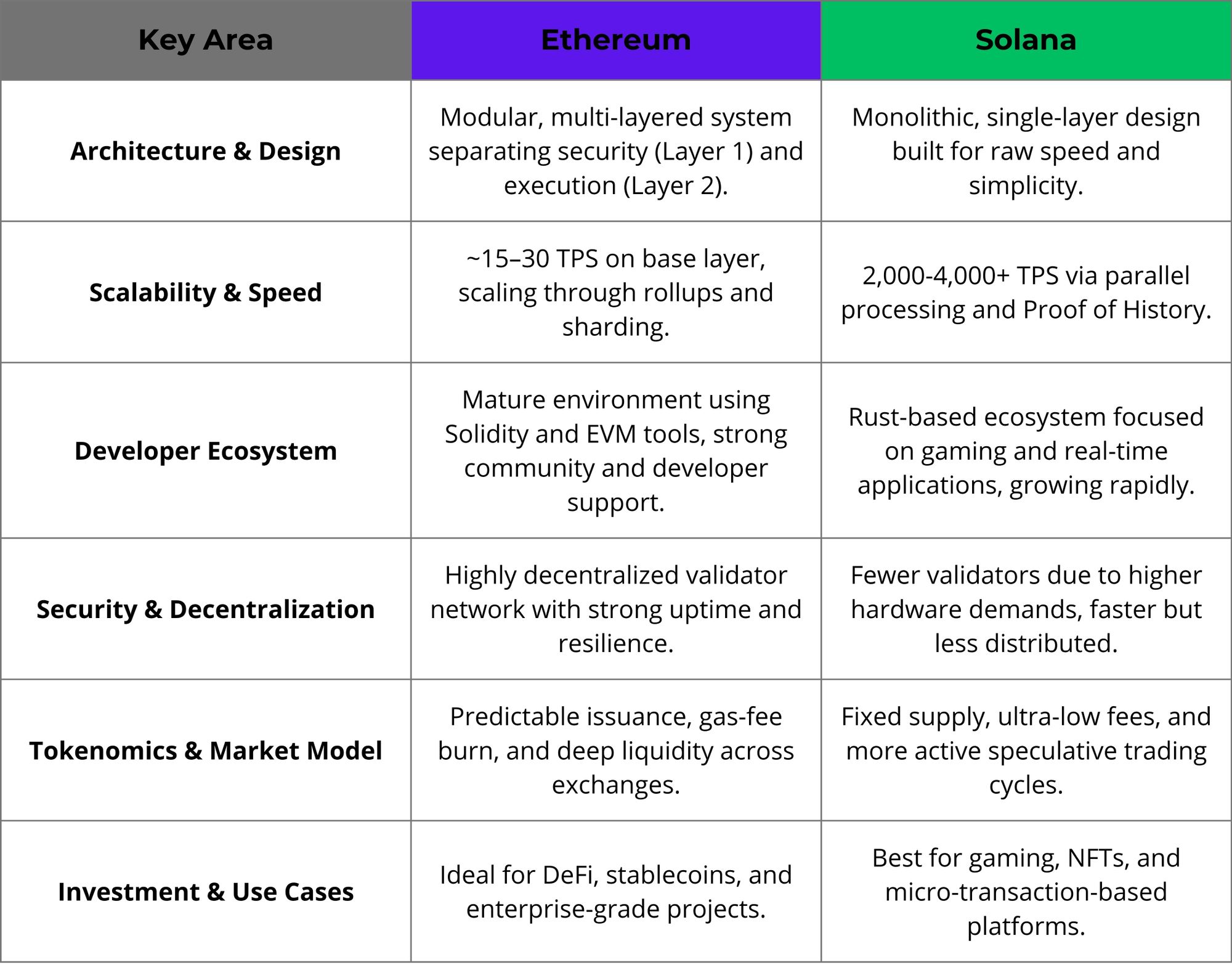
This high-level summary acts as your roadmap for understanding how ETH and SOL differ, from their technical design to their real-world use cases.
How Ethereum and Solana Work Behind the Scenes
Ethereum and Solana both use Proof of Stake (PoS) to validate transactions. But their core structures are fundamentally different, influencing their approach to scalability, smart contracts, and security.
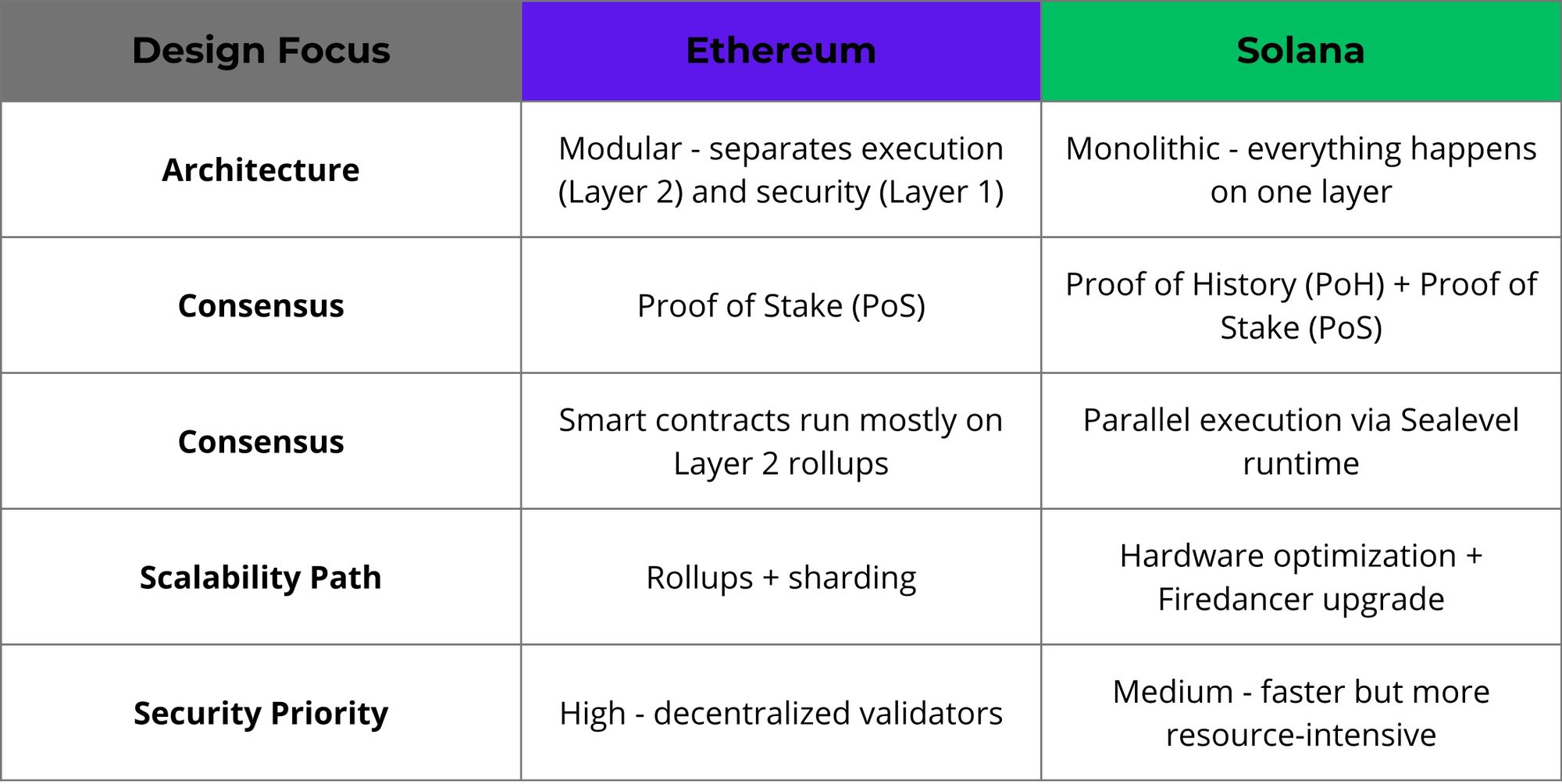
How ETH is Built
Think of Ethereum like a layered system, one layer keeps everything secure, while other layers handle transactions faster and cheaper. This setup helps Ethereum stay safe and scale smoothly without overloading its main network.
How SOL is Built
Solana works more like a supercharged single system, everything, including security, validation, and transactions, happens in one place. That’s why it’s extremely fast, but it also means fewer independent nodes keep it running.
Performance and Network Reliability
Performance isn’t just about speed. Network uptime, decentralization, and security also shape a blockchain’s reliability.
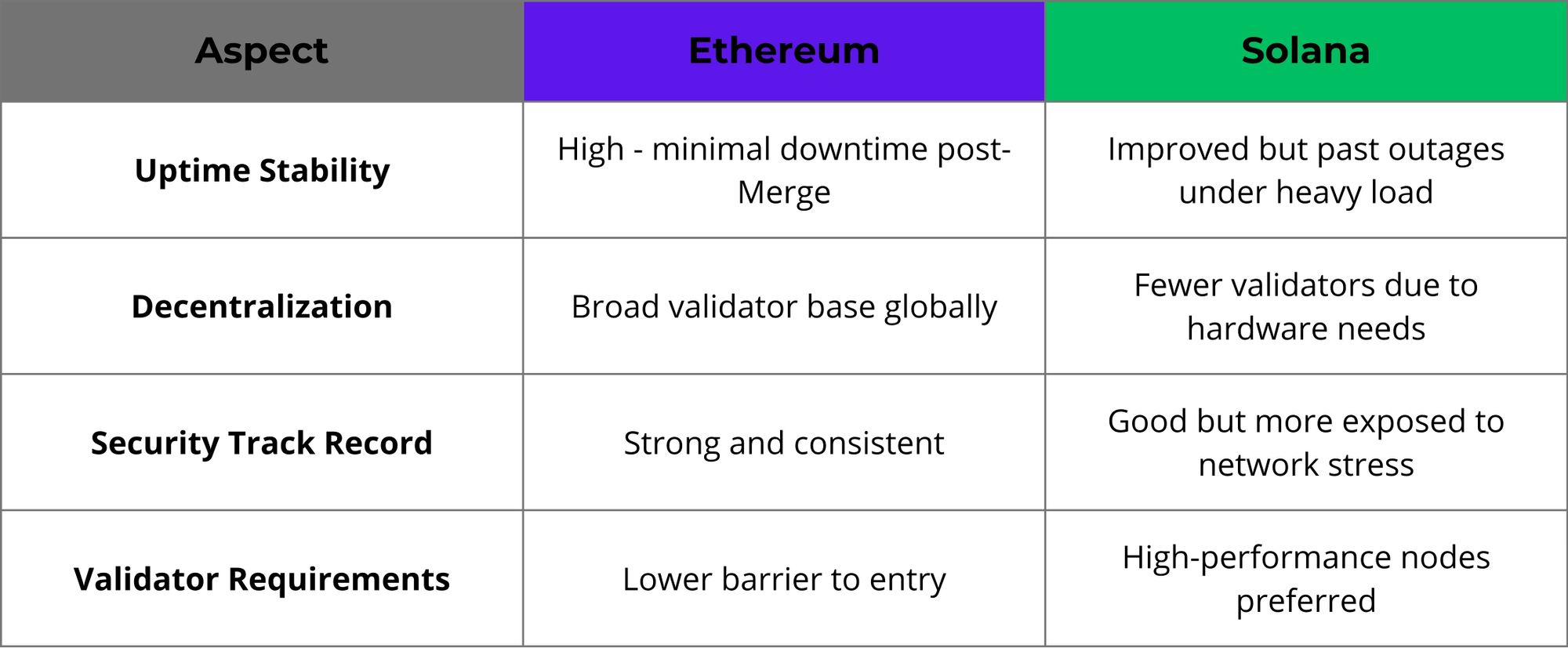
Ethereum tends to favor reliability and decentralization, while Solana prioritizes speed and scalability, often at the cost of centralization flexibility.
Ecosystem and Adoption
Ethereum and Solana each attract distinct ecosystems, from DeFi and NFTs to enterprise and gaming.
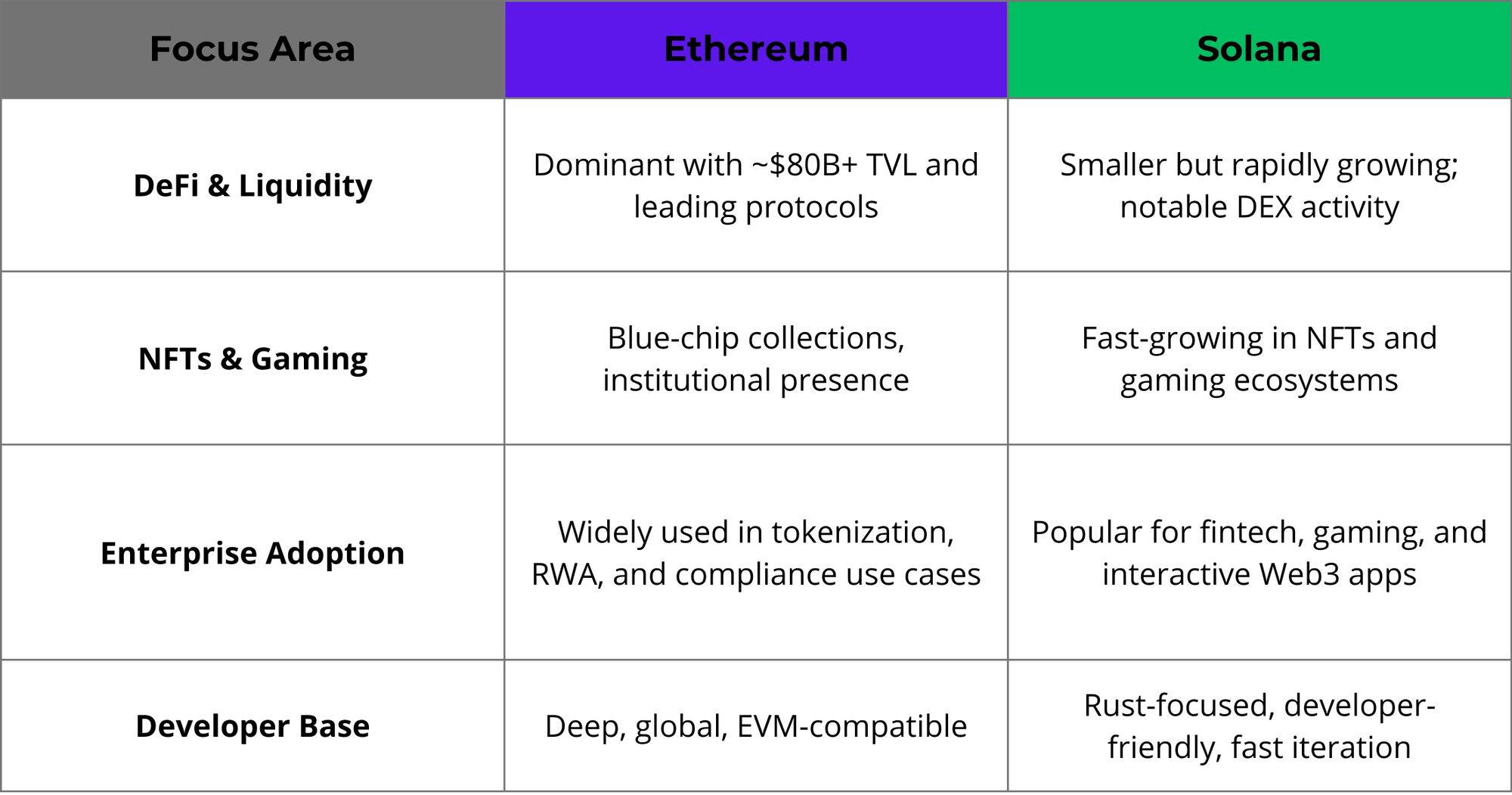
To dive deeper into how Ethereum powers DeFi, explore our guide on innovative Ethereum DeFi use cases on Komodo Academy.
Market Overview and Tokenomics
A blockchain’s market behavior and tokenomics give insight into its sustainability and investor appeal.
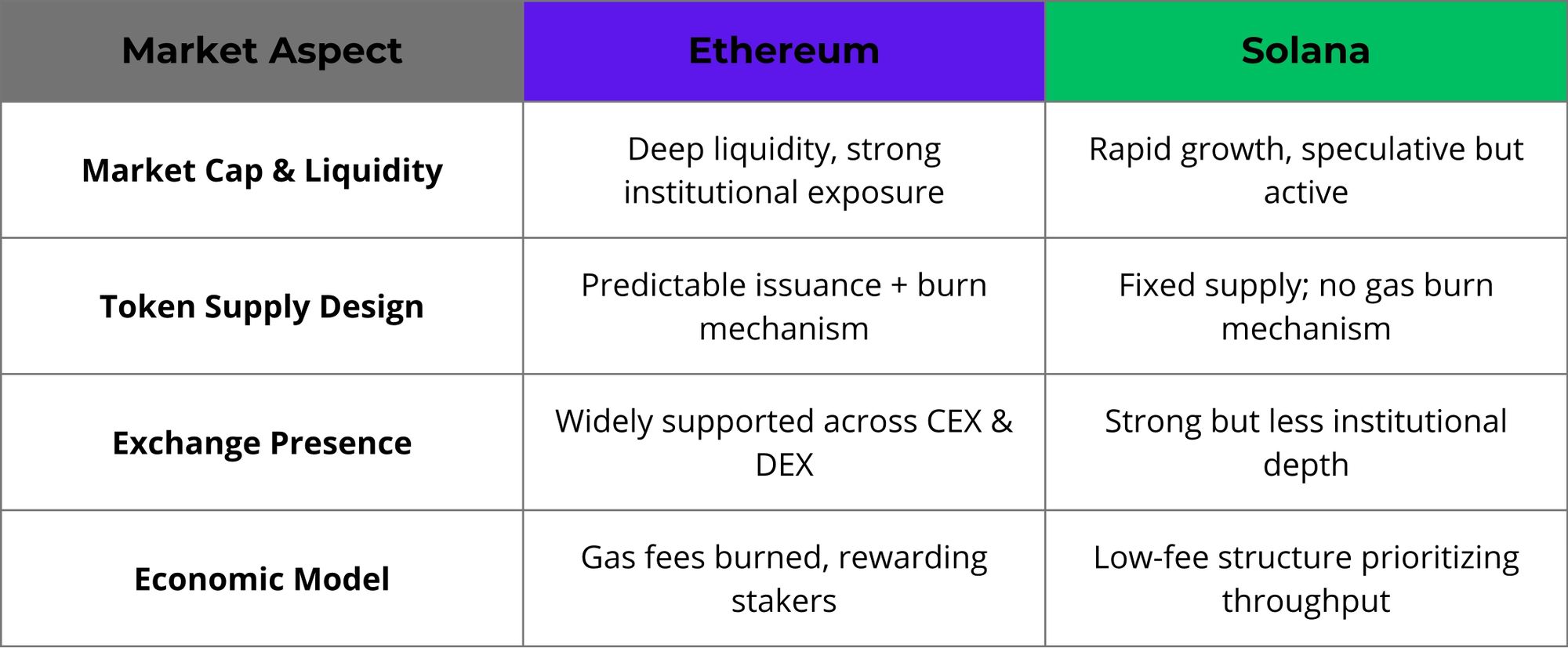
Ethereum’s burn mechanism adds a deflationary effect, while Solana’s low-cost model encourages network usage and accessibility for smaller developers.
Investment Outlook
When estimating Ethereum and Solana as long-term investments or development platforms, each offers distinct advantages and downsides.
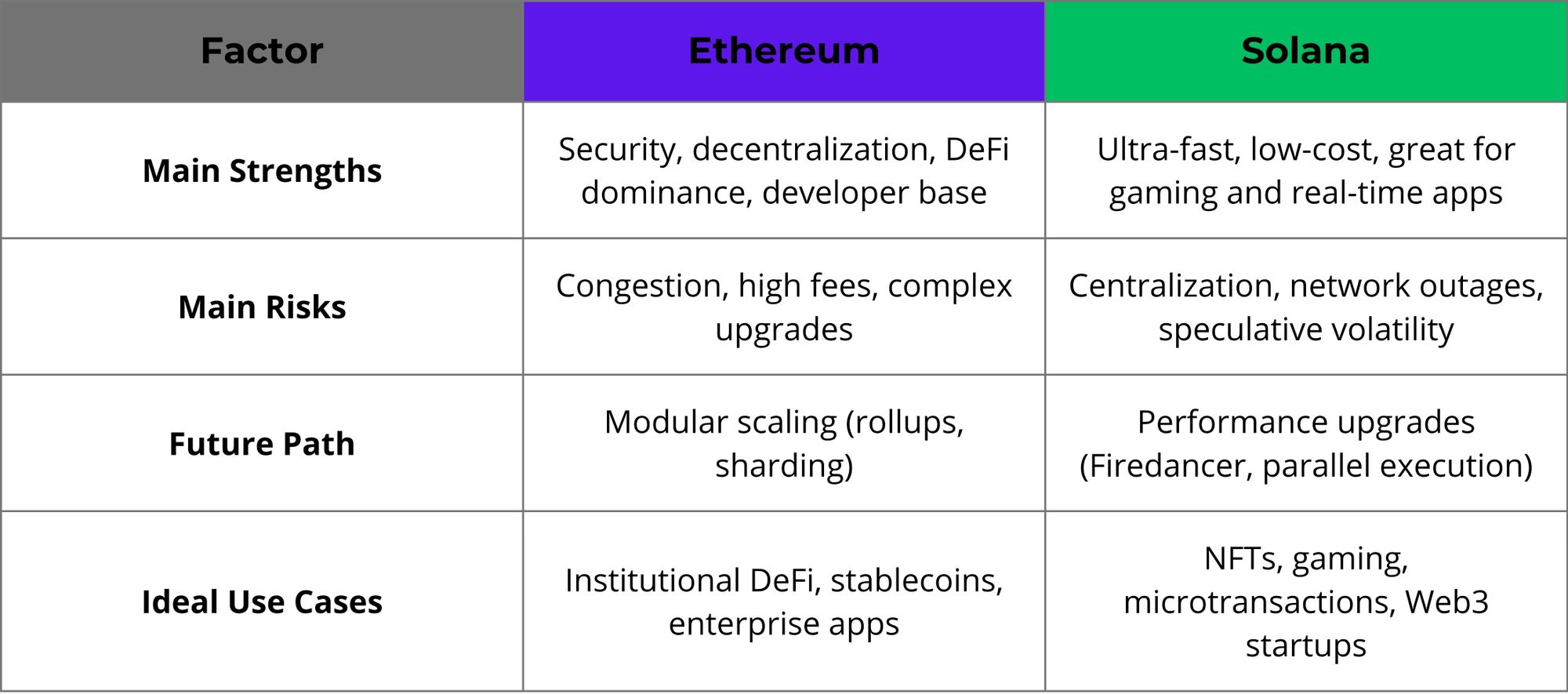
Best Blockchain by Use Case
If you’re trying to choose the right chain for your project, here’s a simplified guide:
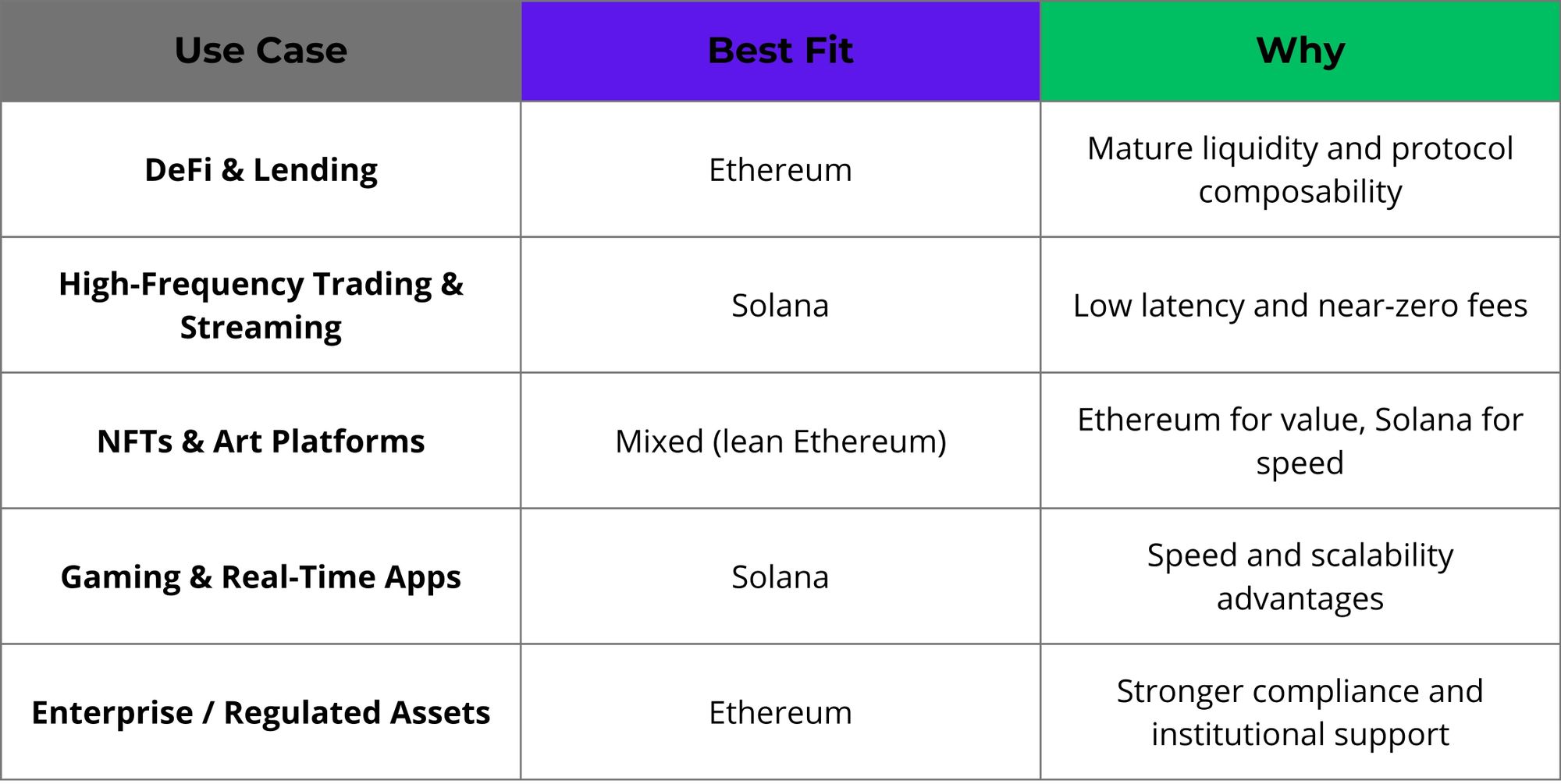
Which Blockchain Fits Your Web3 Strategy?
Ethereum and Solana are not direct competitors - they’re optimized for different goals. Ethereum remains the anchor chain, secure, modular, and preferred for financial and institutional use cases. Solana is the speed-focused chain, built for dynamic, real-time, and user-heavy apps like gaming, NFTs, or microtransactions.
For most Web3 builders, a hybrid approach, using Ethereum for settlement and Solana for interaction, may be the smartest strategy.
Stay ahead in blockchain innovation and keep up with Komodo Platform’s latest developments - begin your Web3 journey with Komodo Platform today.
FAQs about Ethereum and Solana
Which blockchain is more energy-efficient, Ethereum or Solana?
Ethereum’s Proof of Stake drastically reduced its energy consumption compared to its earlier Proof of Work model. Solana is also efficient, though its high-performance hardware demands increase energy use slightly.
Can Solana handle DeFi applications as effectively as Ethereum?
Solana supports DeFi, but Ethereum still dominates in liquidity and composability, making it a better fit for large-scale protocols.
Is Solana an Ethereum killer?
Not quite. Solana complements Ethereum by serving use cases that require speed and low cost rather than replacing it.
Will Solana overcome Ethereum?
It’s possible in specific niches like gaming or NFTs, but Ethereum’s security and institutional trust remain unmatched.
Is Solana better than Ethereum?
Each is better for its target audience - Solana for fast, user-heavy applications, Ethereum for secure, scalable financial infrastructure.
Can both support gaming applications effectively?
Yes, Solana for real-time performance and Ethereum for interoperability and asset composability.
